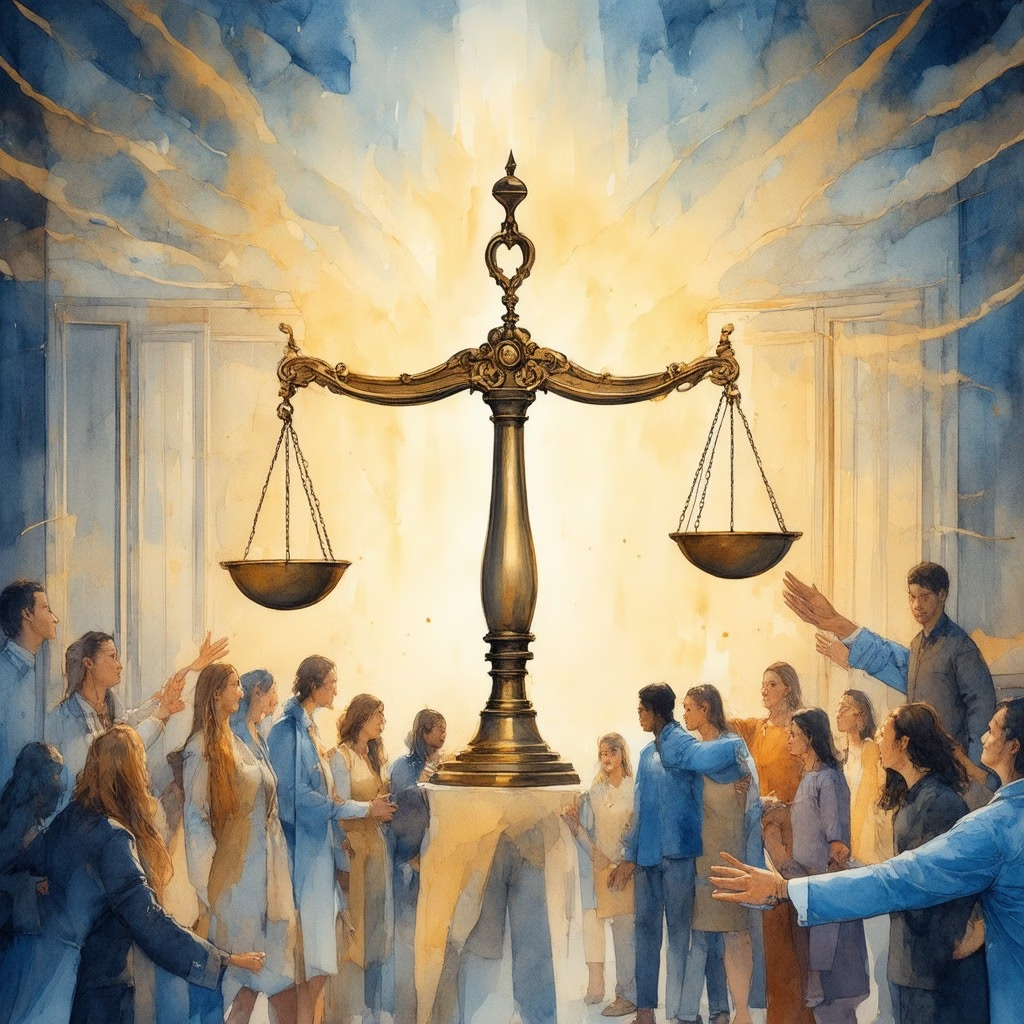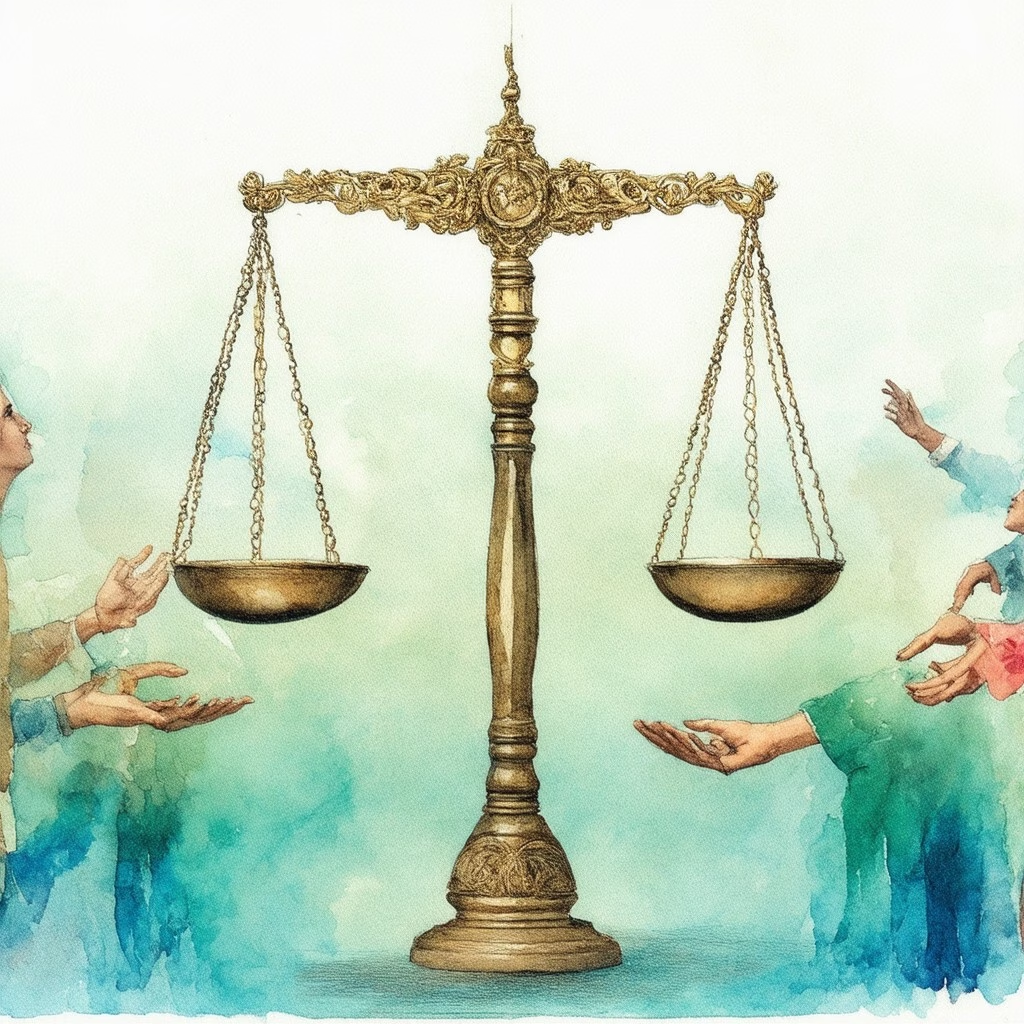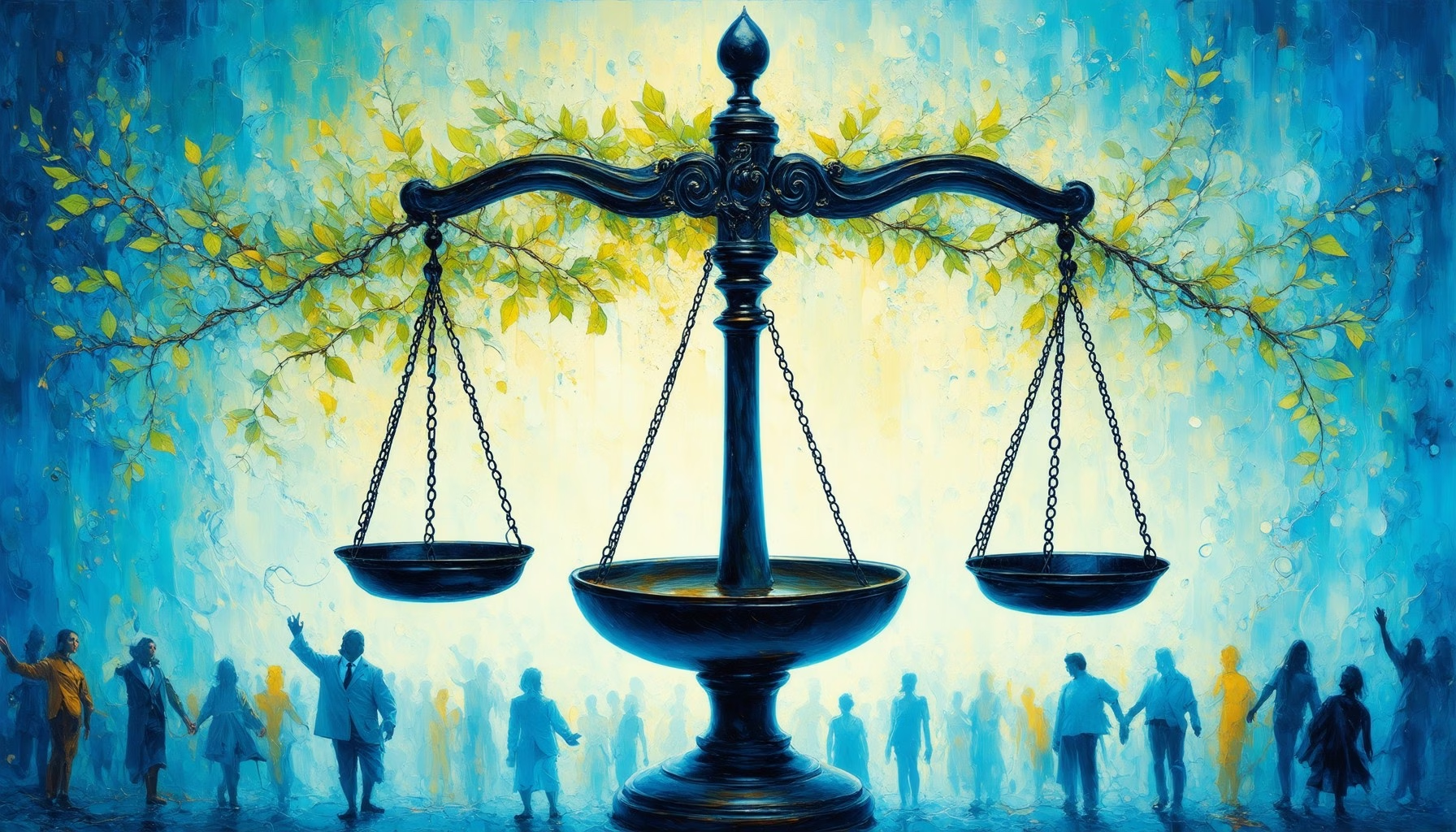Key Takeaways
- Access free legal aid for civil cases to secure essential legal support when you can’t afford a lawyer.
- Legal aid organizations provide assistance with crucial areas such as housing issues, healthcare access, and employment rights.
- Many Americans turn to pro bono services offered by private attorneys and law school clinics for free legal representation.
- Eligibility for free legal services typically depends on income, often aligned with federal poverty guidelines.
- Utilize online directories and local bar associations to find legal aid resources in your area efficiently.
Accessing legal support can be a daunting challenge, especially when financial constraints make hiring a lawyer seem impossible. In this comprehensive guide, we will explore the world of free legal aid for civil cases, providing you with essential insights into how to navigate this critical resource. From understanding whether legal aid takes civil cases to discovering the types of civil matters covered, we will address key questions that many Americans face when they cannot afford legal representation. You will learn about the various free legal services for civil cases available, including local resources and pro bono options. Additionally, we will discuss income eligibility requirements and the application process for free legal aid civil matters. Whether you are seeking free legal advice for a civil case or wondering if you can get a free lawyer for a civil case, this guide aims to empower you with the knowledge you need to access the legal support you deserve. Join us as we delve into the intricacies of legal aid available for civil cases and uncover the pathways to obtaining the assistance you need.
Does legal aid take civil cases?
Understanding Legal Aid for Civil Cases
Yes, legal aid does take civil cases. Civil legal aid provides free legal assistance to individuals with low to moderate incomes facing non-criminal legal issues. This assistance is crucial for helping people navigate various civil matters, ensuring access to essential services and protections under the law.
Key areas where civil legal aid can assist include:
- Healthcare Access: Legal aid can help individuals secure health care benefits, including Medicaid and Medicare, and address issues related to medical debt or discrimination in healthcare settings.
- Housing Issues: Legal aid services often assist with eviction defense, landlord-tenant disputes, and securing safe and affordable housing. This is particularly vital in preventing homelessness and ensuring stable living conditions.
- Government Benefits: Individuals may require assistance in applying for or appealing decisions related to government benefits such as Social Security, unemployment benefits, and food assistance programs.
- Employment Rights: Legal aid can help workers understand their rights, address wrongful termination, workplace discrimination, and wage disputes, ensuring fair treatment in the workplace.
- Educational Services: Legal aid can assist families in navigating issues related to special education services, school discipline, and access to educational resources.
According to the Legal Services Corporation (LSC), civil legal aid plays a critical role in promoting justice and equality by providing necessary legal support to those who cannot afford it. For more information on accessing legal aid services, individuals can visit the LSC website or local legal aid organizations.
Types of Civil Cases Covered by Legal Aid
Legal aid covers a wide range of civil cases, ensuring that individuals facing legal challenges can receive the support they need. Common types of civil cases include:
- Family Law: This includes divorce, child custody, and domestic violence cases, where legal aid can provide essential representation and guidance.
- Housing Law: Legal aid assists with cases involving eviction, foreclosure, and tenant rights, helping individuals maintain their housing stability.
- Consumer Protection: Legal aid can help individuals facing issues with debt collection, fraud, and unfair business practices.
- Public Benefits: Assistance with securing or appealing government benefits, ensuring that individuals receive the support they are entitled to.
- Disability Rights: Legal aid can support individuals in obtaining disability benefits and addressing discrimination based on disability.
By providing legal assistance in these areas, legal aid organizations help ensure that low-income individuals have access to justice and can effectively advocate for their rights. For more detailed information on specific civil cases and available resources, consider visiting Understanding legal aid options.

What do many Americans do if they cannot afford a lawyer in a civil case?
Many Americans facing civil legal issues without the means to hire a lawyer often turn to several resources for assistance:
- Legal Aid Organizations: These nonprofit organizations provide free or low-cost legal services to individuals who meet specific income eligibility criteria. Legal Aid can assist with various civil matters, including housing, family law, and consumer issues. The Legal Services Corporation (LSC) is a key resource that funds these organizations across the United States, ensuring access to justice for low-income individuals.
- Pro Bono Services: Many private attorneys offer pro bono (free) legal services as part of their professional responsibility. Local bar associations often have programs that connect individuals with attorneys willing to take on cases without charge.
- Self-Help Resources: Courts often provide self-help centers or online resources where individuals can find information about legal procedures, forms, and guidance on representing themselves in court. Websites like the American Bar Association (ABA) offer valuable resources for self-representation.
- Law School Clinics: Many law schools operate legal clinics where law students, supervised by licensed attorneys, provide free legal assistance to the community. These clinics can help with various civil matters and offer a practical learning experience for students.
- Community Organizations: Nonprofits and community groups may offer legal workshops, advice clinics, or referrals to legal resources. These organizations often focus on specific populations, such as immigrants or domestic violence survivors.
- Online Legal Services: Platforms like Avvo and LegalZoom provide affordable legal advice and document preparation services, making legal assistance more accessible to those who cannot afford traditional legal fees.
For more information on available resources, individuals can visit the LSC website or consult local legal aid offices. Access to legal assistance is crucial for ensuring that all individuals can navigate the legal system effectively, regardless of their financial situation.
Free Legal Aid Near Me: Finding Local Resources
Finding free legal aid for civil cases can be straightforward if you know where to look. Here are some effective strategies to locate legal assistance in your area:
- Online Directories: Websites like Legal Services Corporation provide searchable databases to find local legal aid organizations. You can enter your state or zip code to find services tailored to your needs.
- Local Bar Associations: Many state and local bar associations maintain lists of legal aid resources and pro bono services. They can connect you with attorneys who offer free legal advice civil case assistance.
- Community Centers: Local community centers often host legal clinics or workshops where residents can receive free legal advice. Check with your nearest community organization for upcoming events.
- Social Media and Online Forums: Platforms like Facebook and Reddit can be useful for finding recommendations for free legal services. Many communities have groups dedicated to sharing resources and advice.
Utilizing these resources can help you access the legal aid available for civil cases, ensuring you receive the support you need during challenging times.
Are You Entitled to a Lawyer in Civil Cases?
Understanding your legal rights in civil cases is crucial, especially when navigating the complexities of the legal system. Many individuals wonder if they are entitled to a lawyer in civil matters, and the answer often depends on various factors, including the type of case and available resources. While the right to legal representation is well-established in criminal cases, civil cases operate under different rules. Here, we will explore the nuances of legal rights in civil cases and how free legal aid can support those in need.
Legal Rights in Civil Cases: What You Need to Know
In civil cases, individuals do not have a constitutional right to a lawyer, unlike in criminal cases. However, various programs and resources exist to assist those who cannot afford legal representation. Many states offer legal aid services that provide free legal assistance for civil matters, including housing disputes, family law issues, and employment-related cases. Understanding these resources is essential for anyone facing a civil lawsuit.
Legal aid organizations typically evaluate eligibility based on income and the nature of the case. For instance, income eligibility for free legal aid often aligns with federal poverty guidelines. If you qualify, you may receive free legal advice for your civil case, which can significantly impact the outcome of your situation.
Pro Bono Lawyers for Civil Cases: How They Can Help
Pro bono services are another valuable resource for individuals seeking legal representation in civil cases. Many attorneys volunteer their time to provide free legal services for civil cases, particularly for low-income families. These pro bono lawyers can assist with various civil matters, including personal injury claims, landlord-tenant disputes, and family law issues.
To find pro bono legal assistance, you can start by contacting local legal aid organizations or bar associations. Websites like the American Bar Association offer directories of pro bono services available in your area. Additionally, you can explore options for accessing free legal services tailored to your specific needs.
What is the maximum income to qualify for legal aid?
Understanding the maximum income to qualify for free legal aid civil matters is crucial for individuals seeking assistance with civil cases. Legal aid organizations typically set income limits based on the federal poverty guidelines, which vary by household size and location. Generally, to qualify for free legal aid for civil cases, your income must fall below a certain percentage of the federal poverty level, often around 125% to 200%. This means that if you are a single individual, your annual income should not exceed approximately $16,000 to $32,000, depending on your state and specific legal aid organization.
Income Eligibility for Free Legal Aid Civil Matter
To determine if you qualify for legal aid available for civil cases, you will need to provide documentation of your income, including pay stubs, tax returns, and any other relevant financial information. Each legal aid organization may have its own criteria, so it’s essential to check with local services. For example, organizations like the Legal Services Corporation provide resources to help you understand your eligibility based on income. Additionally, some states may offer sliding scale fees based on your income level, allowing for more flexibility in accessing free legal services for civil cases.
Understanding the Application Process for Legal Aid
The application process for free legal advice civil case assistance typically involves filling out an application form, which can often be done online or in person. During this process, you will need to disclose your financial situation and the nature of your legal issue. It’s important to be honest and thorough, as this information will determine your eligibility for can you get legal aid for civil cases. After submitting your application, a legal aid representative will review your case and inform you of your options. For more detailed guidance on applying for legal aid, you can refer to our Guide to legal aid eligibility.

Can you get free legal aid for civil cases?
Yes, you can access free legal aid for civil cases through various resources designed to assist individuals who cannot afford legal representation. Understanding the options available is crucial for navigating your legal challenges effectively.
Legal Aid Available for Civil Cases: An Overview
Legal aid organizations play a vital role in providing free legal services for civil cases. These organizations typically focus on helping low-income individuals with issues such as housing disputes, family law matters, and public benefits. To qualify for these services, applicants usually need to meet specific income guidelines. You can find legal aid organizations in your state through resources like the Legal Services Corporation or local bar associations.
In addition to legal aid organizations, many attorneys offer pro bono services, which are free legal services provided to those in need. The American Bar Association encourages lawyers to dedicate a portion of their time to pro bono work, making it easier for individuals to find legal assistance without incurring costs.
Free Legal Advice Civil Case: Where to Seek Help
If you are looking for free legal advice for a civil case, there are several avenues to explore:
- Local Legal Aid Offices: These offices can provide personalized assistance and guidance on your specific legal issues. They often have resources tailored to your needs.
- Online Legal Resources: Websites like Nolo Legal Encyclopedia offer valuable information and self-help resources for individuals representing themselves in civil matters.
- Law School Clinics: Many law schools operate clinics where law students provide free legal services under the supervision of experienced attorneys. This can be a great way to receive assistance while also helping students gain practical experience.
- Community Workshops: Some organizations host workshops that provide free legal advice and information on various civil matters. These can be excellent opportunities to learn about your rights and options.
For further guidance on accessing free legal services, consider visiting this resource for comprehensive information on finding legal help.
Can You Get a Free Lawyer for a Civil Case?
Accessing free legal aid for civil cases can be a crucial lifeline for individuals facing legal challenges without the means to hire an attorney. Understanding the options available for free attorney services can empower you to navigate your civil matters effectively.
Free Attorney Services: What to Expect
When seeking free legal aid for civil cases, you can expect a variety of services designed to assist low-income individuals. These services may include:
- Consultations with attorneys who specialize in civil law.
- Representation in court for civil lawsuits, such as housing disputes or family law matters.
- Access to legal advice through hotlines or community legal clinics.
Many organizations, such as the Legal Services Corporation and local legal aid offices, provide these services. They aim to ensure that everyone, regardless of income, has access to legal representation. If you are wondering can you get a free lawyer for a civil case, the answer is yes, especially if you meet the income eligibility criteria.
I Need a Lawyer and I Have No Money: Options Available
If you find yourself in a situation where you need a lawyer but lack the financial resources, there are several options to consider:
- Pro Bono Services: Many attorneys offer pro bono services, meaning they provide legal assistance at no cost. You can find pro bono lawyers through local bar associations or legal aid organizations.
- Legal Aid Programs: Various legal aid programs are available to assist with civil matters. These programs often have specific eligibility requirements based on income and the type of legal issue. For more information, visit Accessing free legal services.
- Law School Clinics: Many law schools have legal clinics where law students provide free legal advice under the supervision of licensed attorneys. This can be a valuable resource for individuals seeking assistance with civil cases.
In summary, if you are in need of legal assistance but have no financial means, there are multiple avenues to explore for obtaining free legal advice for civil cases. Utilizing these resources can help ensure that you receive the support necessary to address your legal challenges effectively.
Is legal aid free?
Legal aid is designed to provide assistance to individuals who cannot afford legal representation, particularly in civil cases. While the term “free” is often associated with legal aid, it’s essential to understand that there may be some costs involved depending on the specific services and the organization providing the aid. Generally, legal aid services are offered at no charge or on a sliding scale based on income, making them accessible to low-income families. This means that for many, legal aid can effectively be free, especially for those who qualify under the income thresholds set by various legal aid organizations.
The Cost of Legal Aid: Understanding Fees and Services
Most legal aid organizations, such as the Legal Services Corporation and local legal aid offices, provide free legal services for civil cases, including assistance with housing disputes, family law, and consumer issues. However, some organizations may charge nominal fees for specific services or require clients to cover certain costs, such as court filing fees or other related expenses. It’s crucial to inquire about any potential costs when seeking legal aid to avoid unexpected charges.
Free Legal Advice Hotline 24/7: Accessing Immediate Support
For those in urgent need of legal assistance, many legal aid organizations offer a free legal advice hotline available 24/7. This service allows individuals to speak with a qualified attorney who can provide immediate guidance on their civil matters. These hotlines are particularly beneficial for those who may not have the means to visit a legal aid office in person. To find a hotline in your area, you can visit resources like the American Bar Association or check local legal aid websites. Utilizing these services can help you understand your rights and options in civil cases without incurring any costs.




